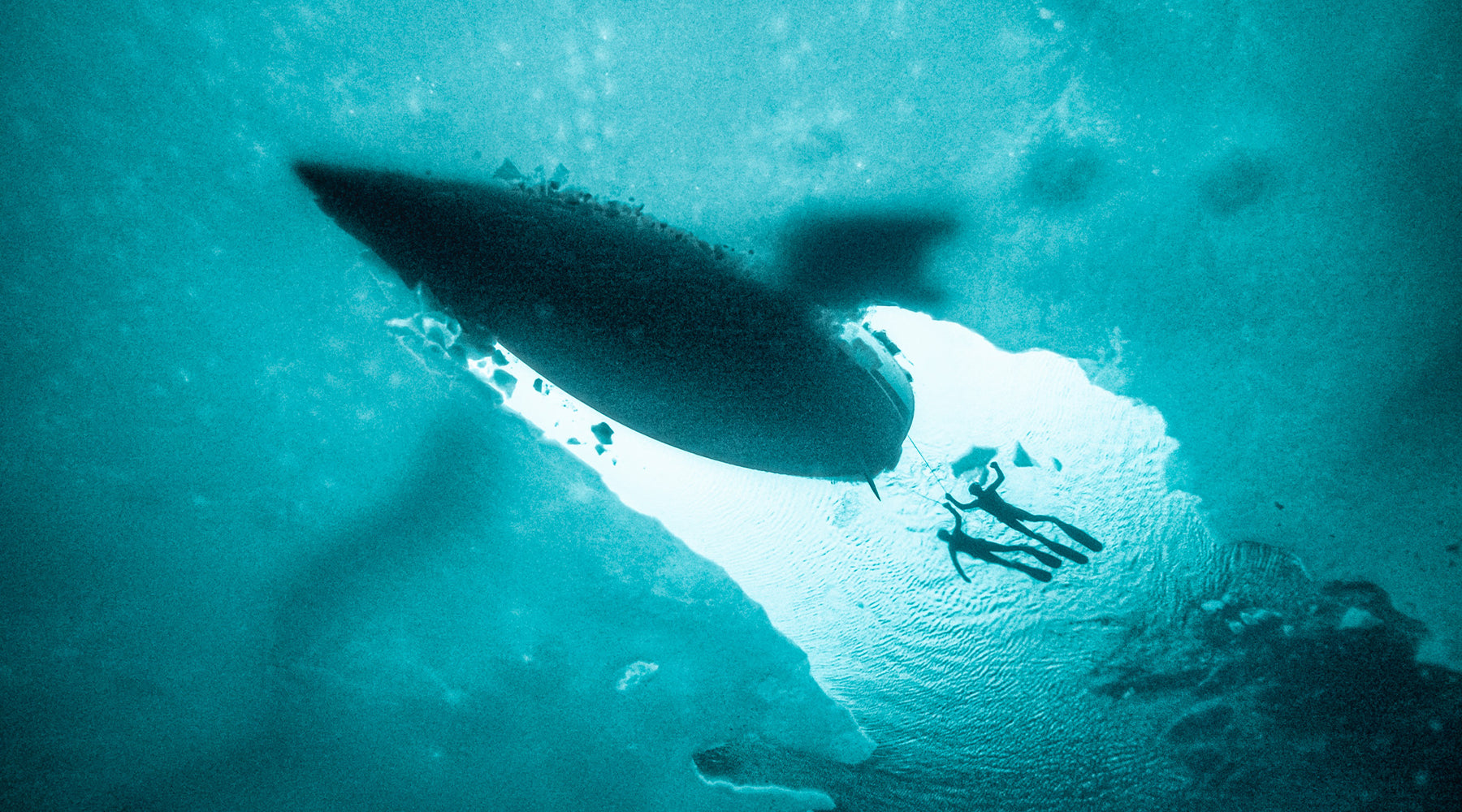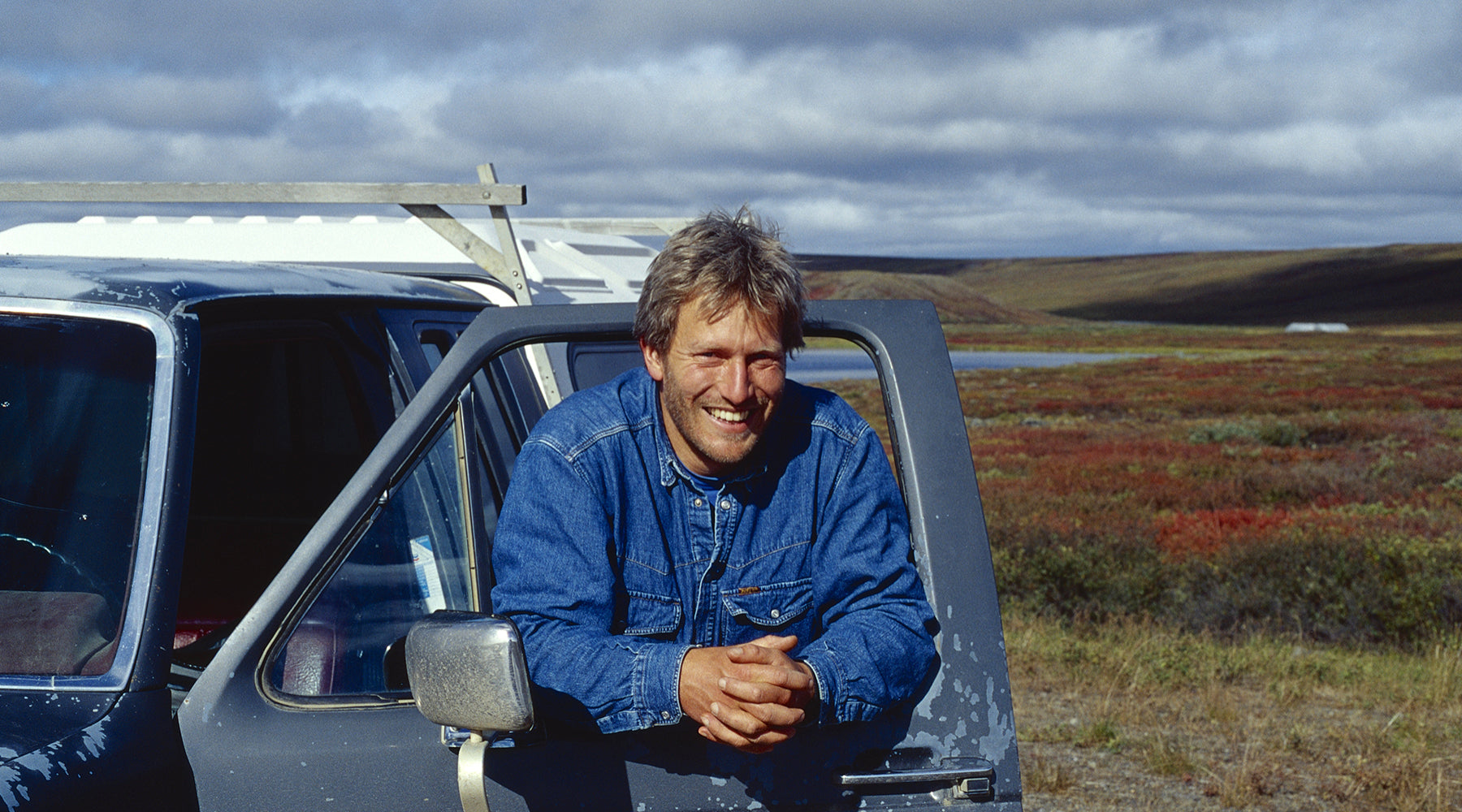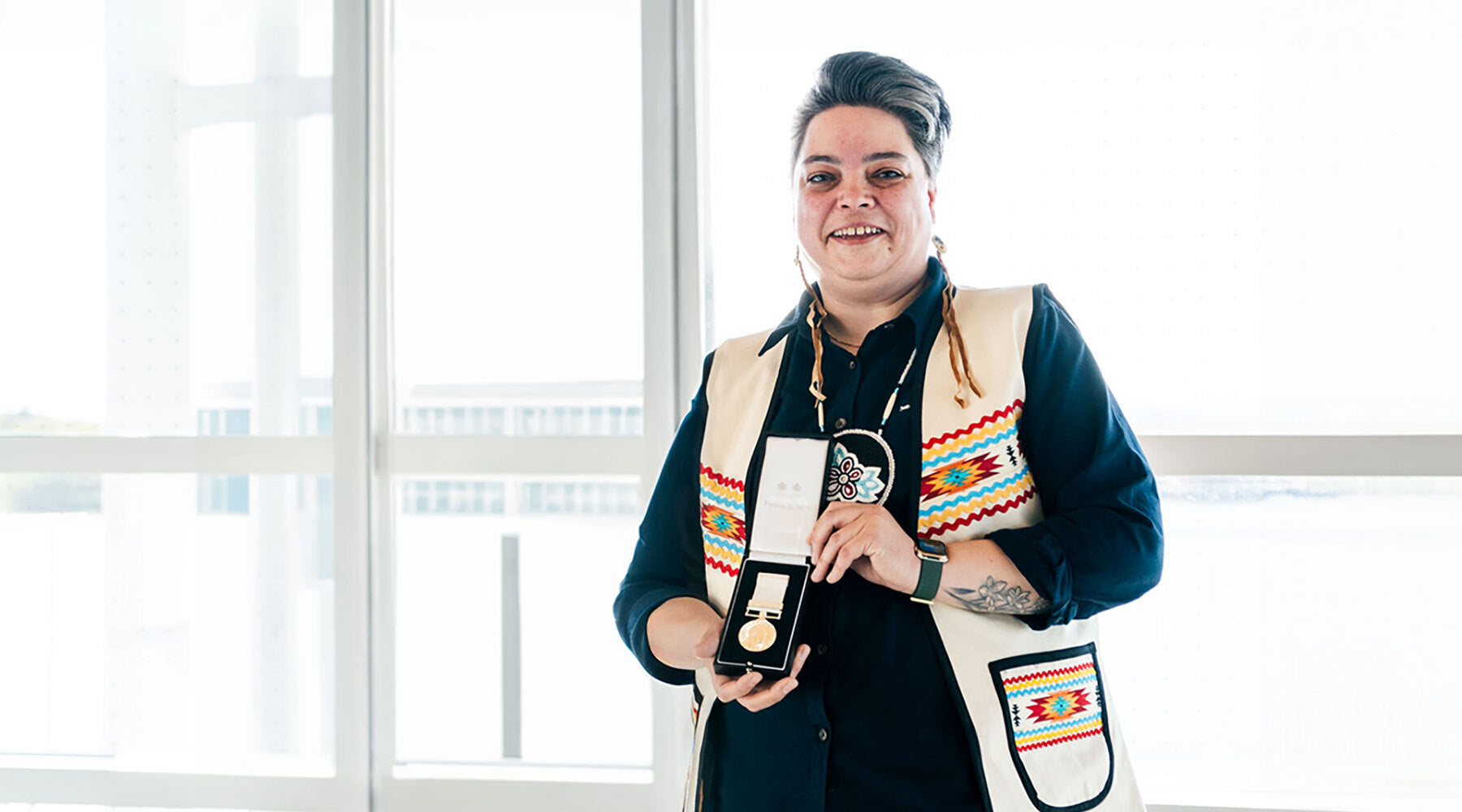
SHACKLETON MEDAL: Meet the Shortlist - Andreas B. Heide
The shortlist for the Shackleton Medal for the Protection of the Polar Regions 2024 was announced on 24th April 2024, following an animated debate at the Royal Geographical Society, chaired by Sunday Times bestselling author Lewis Dartnell. In our latest journal series we meet each of the inspiring individuals from the shortlist. Here, sailor, adventurer and marine biologist, Andreas B.Heide talks about live on board his boat, Barba, using online communication to share his research with school children, and the risks involved in being left in in the Arctic in just a wetsuit.
What was it that first sparked your passion to live the way that you do?
I think we're all born differently. From an early age it was evident to the people around me that I was the adventurous type. I grew up just next to the ocean. From as early as I can remember, I was down on the rocks, exploring, and catching crabs, and then later building rafts and starting to venture out. I got my first boat when I was nine with a four horsepower engine. And I just kept pushing the boundaries. What drove me then and what keeps driving me now is my curiosity about nature. I remember walking down to the ocean and looking out to the horizon and wondering what was below the surface. Now I feel I have the opportunity to do what I love the most while also sharing this love and passion.

What detail about your work most surprises people?
What most people don't realise with my job is that the hardest part is the loneliness. At the end of the day you're responsible for everything and you can't always discuss all the matters with your team, because there's so many levels of complexity. There’s no real remedy for it. It helps to talk to other captains because they have experienced the same thing. Ultimately, the safety of your crew and the boat comes down to you. In an office if something goes wrong it’s annoying but there's no real physical consequences to having to live with that. On a boat the stakes are very different. Often I know the families of the crew, and I know they are also trusting me to do my job. That's a huge responsibility.

What technological advance has proved a real game changer?
When you're on a boat, nature dictates the terms and nothing else. Technology allows us to have a better understanding of nature and the environment, which allows us to push further in the things we do. The main thing you need is access to weather data, access to ice charts. Initially we had just an Iridium phone, which is a very primitive means of communication that allows you to download text files. Then last year we introduced broadband access through Elon Musk’s satellite system Starlink. That was an absolute game changer. There was one funny occasion when were on Bear Island – which is between Norway and Svalbard. And we had caught a cod for dinner and I was discussing with my friend how we should cook it. I thought we should add vinegar to the water, he thought that was a bad idea. So I secretly FaceTimed his mum, who was out hiking on a mountain. Then I gave the phone to him and said, ‘Talk to your mum, she’ll tell you!’
More seriously the highlight has been being able to do live educational calls with school children from Svalbard. No matter how big the boat is, you're still only going to be able to have a limited amount of people on board. Using this this online communication you can reaching thousands of children, that's when you really start to have an impact.

Can you talk more about how you communicate your work?
One of my biggest heroes is Jacques Cousteau. What really grasped me were his adventurous videos of people underwater. That’s what we’re trying to reproduce with this boat. We have different means at our disposal, but we want to appeal to the kind of curiosity that got me involved.
We’ve worked with Antoine Drancey, who is French videographer, and has an underwater drone that allows you to dive down to 500 meters and provide a live feed to this small boat. We've been deploying bait in the Norwegian fjords, hoping to attract Greenlandic sharks. People talk about the curiosity of the deep and this is really opening our eyes to the depths.

What kind of risks are you dealing with in your work?
It surprises me that people always ask, ‘Are you worried about orcas attacking you?’ I'm a bit worried about that, but not a lot, because there's never been an incident in the wild with orcas attacking humans. On the other hand, no-one asks, ‘Are you not scared of being in a wetsuit in two degrees water in the winter?’ That's what I worry about. Because if something happens to the vessel, then you're on your own in your wetsuit in the Arctic.

What training did you do to get where you are today?
I have a Master's in aquaculture. It's marine biology for fish farming. I spent four years in Bergen, studying that, as well as some time in China and Canada. I'm also worked at the Institute of Marine Research in Bergen. Despite this strong maritime background, I didn't have the vaguest idea about the amount of marine life that's out in Norwegian waters and around the Shetlands. The Shetlands have basking sharks. We’ve also come across so many whales like blue whales, humpback whales, fin whales, sperm whales, beluga whales. I’ve spent all my life studying the marine environment, but this is still a surprise to me. I think if more people were aware of and engaged with this environment, they would change their behaviour to help preserve it.

Name one thing people can do to help protect the ocean.
Whenever I see someone throw a cigarette butt in the ocean – which people do unfortunately – I say to them politely, ‘I'm sorry, do you know that's going to stay in the marine environment for 20 or maybe 100 years?’ Often they say they didn’t know and stop doing it. So it can be simple. It’s all about maintaining awareness. It was the same with the campaign about what plastic straws do to turtles. I think that’s why the storytelling side of our work is so important.

What is the greatest challenge you have faced to date?
This boat was designed to sail in the Mediterranean. If I had a lot of money, I would have a different boat but you do the best you can with what you have. In our early career in 2015, we pushed too far into the pack ice north of Svalbard. We had studied the weather forecast and everything was looking good. But then the wind pushed us into the ice floe and the boat got stuck in the ice. The hull started making sounds that it shouldn't have been making from the pressure of the ice. So we had four hours of just having to push through the ice and make it out of there. It was tough, but though we could have lost the boat, the crew were not in danger. We would have gone on a ice floe, inflated the life raft, and brought out all that gear we needed.

What would you advise anybody who wanted to live a life like yours?
My first advice is to do something you're passionate about. We’re not all adventurers, so make sure it’s what you want. My next advice is to do it step by step. My career started when I was a child. You learn, for example, what to do if you're in a fjord, and the wind is blowing offshore, and you're in a dinghy that gets an engine failure and you’re blown out to sea. Or I remember how my mother taught me that if you're in a boat and you lose one of the oars you have to go in the bow and paddle both sides. Beyond that being in an environment where the older generation are telling stories about their experiences is very valuable in terms of understanding nature.



